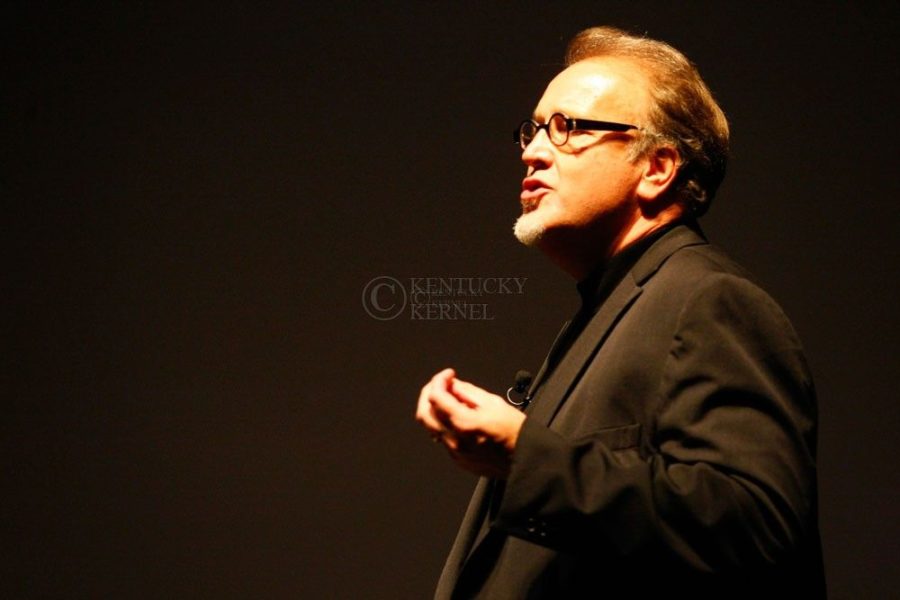Journalist talks social media at Creason Lecture
April 24, 2013
By Tessa Lighty| @KyKernel
On a day that celebrated journalism, Al Tompkins emphasized the continuous need for journalists, even in today’s social media-heavy society.
Tompkins delivered the 36th annual Joe Creason Lecture at Worsham Theater on Tuesday, touching on journalistic blunders as well as achievements.
Tompkins is senior faculty for broadcast and online at the Poynter Institute and has won top awards for journalistic excellence. He was inducted into Kentucky Journalism Hall of Fame in 2008.
Tompkins first addressed the way the Internet has affected journalists. With blogs, Twitter and Facebook, many question whether or not journalists still are needed in today’s society. Tompkins argued that true journalism is more than simply relaying information, but about asking questions and verifying information.
“These are the questions that journalists should be asking, rather than just simply reporting. Not just ‘What do we know?’ but ‘How do we know that?’ ” Tompkins said.
Tompkins spoke about how journalists can use other’s social media to their advantage but need to be wary of what examples they are following.
He gave examples of how people manipulate the media, drawing on an example of sharks being digitally inserted into pictures, the hacking of Joel Osteen’s ministry Web page and even the hacking of the Associated Press’ Twitter page Tuesday morning.
In an effort to not discourage journalists, Tompkins provided examples of “good journalism” from publications such as The Boston Globe, The Washington Post and the (Fla.) Sun-Sentinel.
“He (Tompkins) was able to use so many recent examples that affect us as journalists today,” said Garrett Wymer, a journalism senior, who introduced Tompkins along with journalism junior Becca Clemons.
Journalists are expected to press for answers, hold those in power and in the government accountable for their actions, and seek larger issues to report on, Tompkins said.
“It seems to me that journalists should be, in a very strong way, holding systems accountable,” he said.
Tompkins’ encouragement of good journalism inspired journalism senior Beverly Melton.
“I came back to school after 30 years to be in journalism school and I’m really so excited,” Melton said.
Tuesday also marked the induction of five new members to the Kentucky Journalism Hall of Fame: Ralph W. Gabbard, Bill Goodman, Dan Modlin, John Nelson and Marla Ridenour.
The lecture was also host to the presentation of the David Dick “What a Great Story!” Storytelling Award to student journalist Ashley Scoby and professional journalist Meaghan Downs.























































































































































